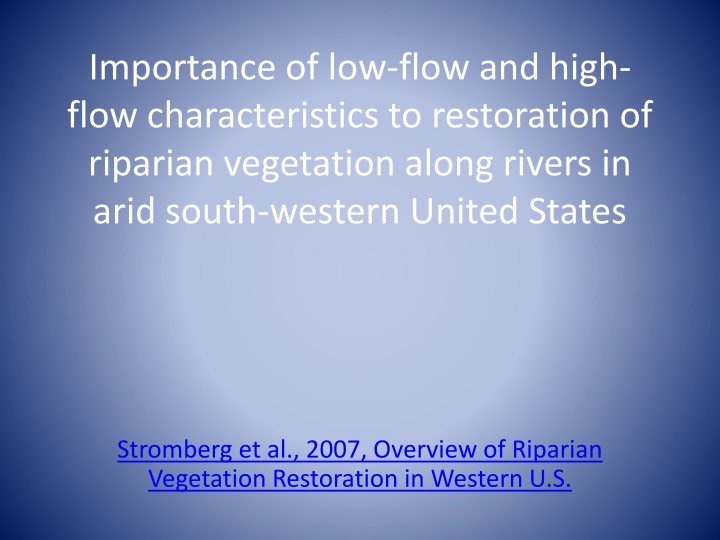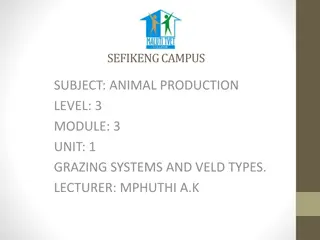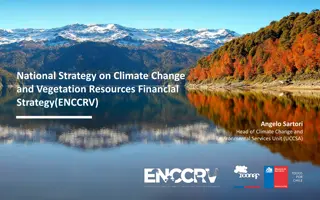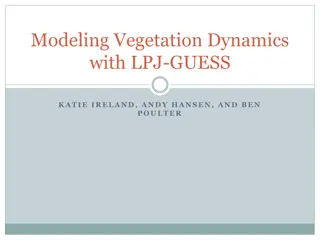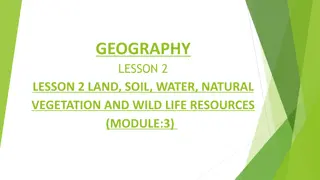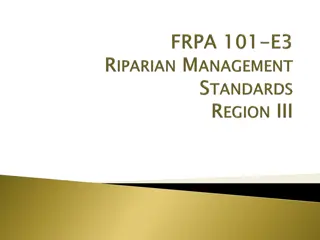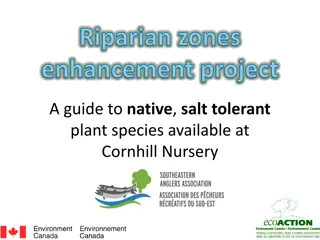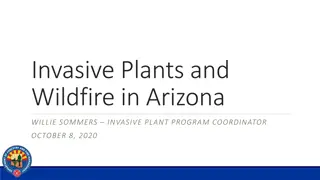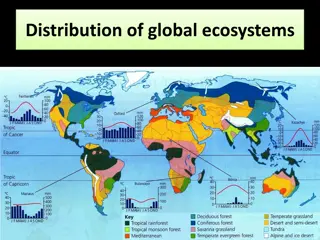Importance of Low-Flow and High-Flow Characteristics for Riparian Vegetation Restoration
This study examines the significance of low-flow and high-flow attributes in restoring riparian vegetation along arid rivers in the southwestern United States. The impact of climate, human activities, and river conditions on the vegetation is explored, highlighting the differences in low-flow and high-flow environments. Various images depict the rivers, climate, human impact, and the varying characteristics of riparian vegetation in response to flow conditions. The role of riparian vegetation as an indicator of stream health is emphasized, showcasing the importance of understanding and managing low-flow and high-flow dynamics for restoration efforts.
Download Presentation

Please find below an Image/Link to download the presentation.
The content on the website is provided AS IS for your information and personal use only. It may not be sold, licensed, or shared on other websites without obtaining consent from the author.If you encounter any issues during the download, it is possible that the publisher has removed the file from their server.
You are allowed to download the files provided on this website for personal or commercial use, subject to the condition that they are used lawfully. All files are the property of their respective owners.
The content on the website is provided AS IS for your information and personal use only. It may not be sold, licensed, or shared on other websites without obtaining consent from the author.
E N D
Presentation Transcript
Importance of low-flow and high- flow characteristics to restoration of riparian vegetation along rivers in arid south-western United States Stromberg et al., 2007, Overview of Riparian Vegetation Restoration in Western U.S.
Overview Rivers in the south west Low-flow vs. high-flow Riparian vegetation in the south west Restoration
Climate Arid, low precipitation Flooding No-flow periods Varied ground water
Human Impact Heavily irrigated
Human Impact Damming
Compared to the North-west Far less recharge No focus on fish Rivers effect the plants and animals Riparian vegetation used as indicator
Low-flow State of the rivers majority of the time Natural fluctuations Flow can be depleted by humans
High-flow Naturally occurs Wet periods Floods Can be sustained by human intervention
Indicator of Health Stream health correlates with vegetation Vegetation reflects stream health Analogues with fish in other reigons
Variation Low-flow Drought resistant Salt resistant Scrub/shrub Low biomass Low diversity High-Flow Pioneer Wetland species High biomass High diversity
Variation Both are natural Cant force high-flow Flooding=variation
Restoration Patch diversity Encourage flooding Stay within natural limits Balance human interaction
